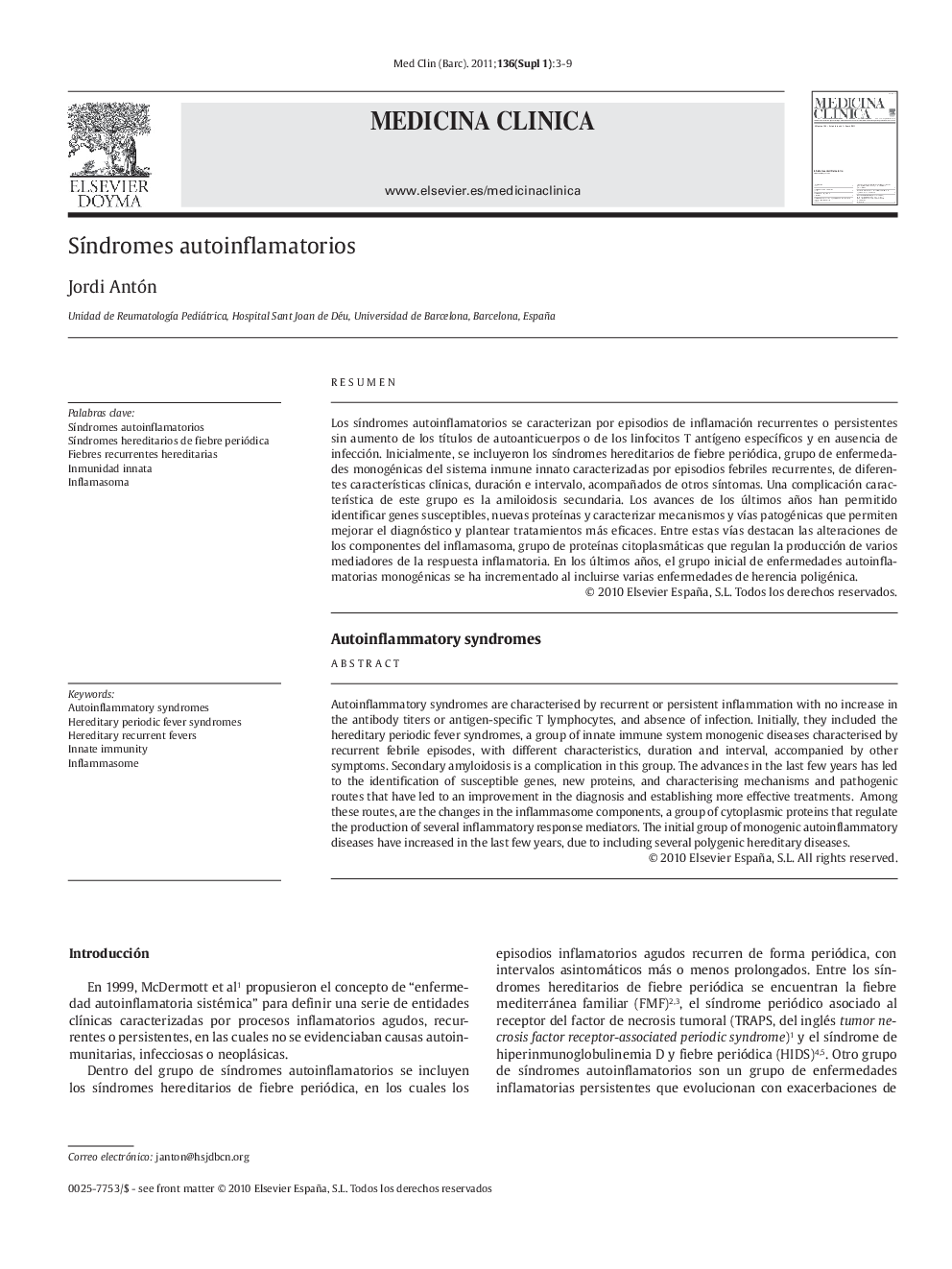| Article ID | Journal | Published Year | Pages | File Type |
|---|---|---|---|---|
| 3798709 | Medicina Clínica | 2011 | 7 Pages |
Abstract
Autoinflammatory syndromes are characterised by recurrent or persistent inflammation with no increase in the antibody titers or antigen-specific T lymphocytes, and absence of infection. Initially, they included the hereditary periodic fever syndromes, a group of innate immune system monogenic diseases characterised by recurrent febrile episodes, with different characteristics, duration and interval, accompanied by other symptoms. Secondary amyloidosis is a complication in this group. The advances in the last few years has led to the identification of susceptible genes, new proteins, and characterising mechanisms and pathogenic routes that have led to an improvement in the diagnosis and establishing more effective treatments. Among these routes, are the changes in the inflammasome components, a group of cytoplasmic proteins that regulate the production of several inflammatory response mediators. The initial group of monogenic autoinflammatory diseases have increased in the last few years, due to including several polygenic hereditary diseases.
Related Topics
Health Sciences
Medicine and Dentistry
Medicine and Dentistry (General)
Authors
Jordi Antón,
